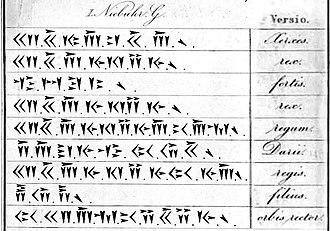JULY 26, 2021 – With this post I reach a milestone: my 800th entry since I started this blog in April 2019. At 500 words per post, that works out to four books of fiction—or perhaps I meant, “friction.”
In the grand scheme of things, however, I wonder sometimes whether my efforts add to the conversation of our times or . . . detract. The total words published every day of our age would’ve been unthinkable by Johannes Gutenberg. In 1455 anyone predicting today’s supernova of published words would’ve been burned at the stake.
We’ve come a long way. Or have we? Perhaps as in our overall development we’ve simply become more insufferable.
I often wonder what future anthropologists will conclude from the vast record we’re creating out of our verbiage. I assume, of course, that critical portions of our record survive and, just as important, that those segments will be accessible and decipherable. Cuneiform-bearing clay survived millennia of war, flood, famine, and pestilence. In addition, long after it went out of fashion (around 3,400 B.C.E.), cuneiform had to be deciphered (1857 C.E.). To feed future study, our digitized data inside some climate-controlled server farm in Utah or Sweden must survive the current round of hell and high water—or “no water,” as the case may be—and be accessible on the SuperMac of 2025—let alone technology in circa 7200.
My thoughts about the future are a digression. Sure, anthropologists, among others, will want to know how and why our civilization went off the rails. The more of our record future researchers can review, the more accurate their analyses and conclusions. Bully for those scholars. What we care about is the here and now—the effect that our thoughts and words have on us today and in the immediate and intermediate future.
My worry with respect to us stems from our constant gush of writing. We’re pinned to the rocks by a roaring torrent, the confluence of metaphorical glacial melt, spring waters, fresh rainwater, nuclear waste-water, untreated sewage, urban stormwater, and agricultural runoff filled with pesticides and herbicides. On this spectrum, I hope I’m contributing more of the potable and less of the toxic water that gets dumped into our common waterway.
I’m reminded of the Hippocratic Oath: First, do no harm. This ought to guide our actions in every endeavor. But how does one know which published words cause harm, especially when effect is often attenuated from cause? So far, the Hippocratic Oath has restrained me from calling for all-out revolution, since revolutions rarely go as planned and often do more harm than good.
Of lesser worry but still a concern: given people’s finite capacity to read and absorb, doesn’t adding water to the swollen river waste a reader’s time and dilute the higher quality of “glacial melt and spring waters”? Yes, and that’s why I cap each post at 500 words.
If you’re a regular reader of “writemakesmight,” I say, “Thanks much.” For you I’ll work to improve the water quality.
(Remember to subscribe to this blog and receive notifications of new posts by email.)
© 2021 by Eric Nilsson

2 Comments
Thanks for your words of wisdom. Write On!
– Bob Becker
Thanks so much, Bob, for the encouragement. — Eric
Comments are closed.